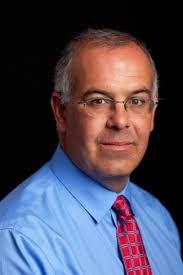
In David Brooks’s 2018 book, The Second Mountain: The Quest for a Moral Life, climbing a mountain is his metaphor for living. You build a career, a family, a place in the Sun. However, many get to the summit, or near it, and feel (as the song goes) is that all there is? Or they’re knocked off the mountain. Bringing them to their second mountain. Centering on something both deeper and yet outside the self; serving not one’s own ego but something larger.
Brooks says he wrote this book as a corrective to his previous one, The Road to Character — written while “still enclosed in the prison of individualism.” He’s since “become radicalized,” by upheavals both global and personal. Now believing “the rampant individualism of our current culture is a catastrophe. The emphasis on self — individual success, self-fulfillment, individual freedom, self-actualization — is a catastrophe.”
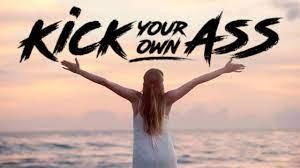
His radicalization is keyed to a scathing self-indictment. Brooks had great first-mountain success, but says it made him a lousy person, destroying his marriage. Also destroyed was the conservative political faith he’d spent his life with, leaving him unmoored. Brooks says writing this book “was my attempt to kick myself in my own rear.”
Individualism has dominated my own thought too. Mindful that through most of history, few had the freedom for personal self-realization, being confined by societal structures and institutions. Breaking free has been a key story of the last few centuries. The Berlin Wall told people where they could not go. What a thrill for me to see whooping crowds at the now-open gates on November 9, 1989. And a flowering of newly liberated individual enterprise visible as I walked Russian streets in 1995. The seeming triumph of my ideals.
But Brooks thinks the individualism thing has gone too far, and I agree. Individual flourishing does not mean society is nothing, the community is nothing — other people are nothing. Maybe some can live good lives in remote cabins. But for most of us, embedment in communities is of the essence for our thriving as individuals. Evolution made us deeply social creatures. Our modern challenge is to reconcile serving individual flourishing with our connections to others.
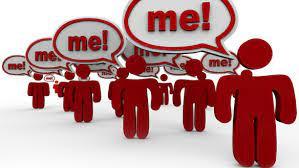
De Tocqueville two centuries ago already described Americans as exceptionally individualistic. On the other hand, conformism reigned as recently as the 1950s. The ’60s saw a revolt against that — “do your own thing.” Giving us the “me generation.” Our age-old way of being, deeply enmeshed in social structures, is wobbling. This is the Bowling Alone syndrome of Robert Putnam’s 2000 book. Surveys show people saying they have ever fewer close friends, and spend less time with them. Measures of societal trust, in institutions and other people, are declining. Social media, ironically — it was supposed to facilitate connections — seems to have accelerated that fraying of interpersonal bonds. A loneliness epidemic is being recognized as a major public health issue. All this Brooks sees as presaging a bleak, even violence-ridden future.
And where my own conservatism did vaunt individual freedom as against the collective, now we’ve seen that viewpoint’s reductio ad absurdum — most visibly in covidiots insisting mask-wearing and vaccination violated their personal liberty, with no concern about endangering others. For them, it seems, society is nothing, other people are nothing.
Brooks now actually says “freedom sucks.” Seeing an emptiness inside outwardly successful people. Our whole society “built around self-preoccupation, its members become separated from one another, divided and alienated.” What is life really about? He sees a “telos crisis” — not knowing what one’s purpose is. He thinks it’s not building a persona to win success and approval, but rather serving something deeper at one’s core, “where your heart and soul reside.”
What he really has in mind is devoting oneself to serving others. And to counteract the fraying of social cohesion, he more specifically urges not one-on-one efforts, but rather working to build neighborhoods and strengthen communal bonds. The book is loaded with salutary examples. But Brooks also calls us to simply be “good friends, neighbors and citizens.”
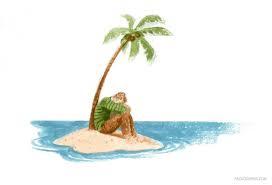
No man is an island, wrote John Donne. Yet for all our social archipelagos, each of us is locked within their own skull. However much you’re concerned with others, they cannot have a reality for you fully equivalent to your own.
And Brooks is right that defining your good in terms of how others see you — all the quest for worldly success, status, admiration — is mistaken. Because you cannot access or experience what transpires in other people’s heads. Those you love, are close to, share relationships with — their thoughts do affect your own well-being. But others are more like ghosts to you. Human empathy and sympathy may properly make you care how they fare. But how they feel about you needn’t concern you. Structuring your life around that is a chimera. Fame — something happening entirely in the minds of people unconnected to you — is a false snare.
What this all means is that it’s ultimately in yourself — your own self (or ego, if you will) — that fulfillment occurs. If it occurs by serving others, fine. But the dopamine or oxytocin, or whatever, that you get from it, is only in your own brain. Thus I’m dubious that somehow submerging the self in the service of others must be the route to meaning in one’s life.
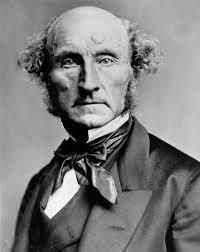
I keep recalling Garrison Keillor’s quip that if one’s purpose is to serve others, then what purpose is served by the existence of those others? It’s not merely a joke. If everyone were actually selflessly sacrificing themselves to the service of others, the totality of human well-being would be diminished. Whereas everyone pursuing their own good makes for more happiness overall. So argued John Stuart Mill.
Thus the point is doing for others because it makes you feel good about yourself. To somehow put your own ego out of the picture is an impossible absurdity. Truly selfless deeds are rare. When people do generous things, it’s mainly for the sake of positive feelings created in their own brains.

Reading a book like this naturally prompts introspection. I left my professional career at 49 in 1997. Had made a great marriage; sired a great kid. And felt just what Brooks describes: that I’d come over a mountain, to the other side. But I reckoned that a good place, needing no second mountain. I confess to doing some philanthropy, which is rewarding, but to be honest, only what’s easy for me, and it’s not what I live for. What I live for is the experience of being alive, a near-miraculous gift, and the feeling that I’m living it well. I consider such “pursuit of happiness” an “inalienable right;” not hung up struggling to reconcile it with altruistic impulses.
The same evolutionary factors that made us social creatures, as part of that, also gave us moral instincts, which helped promote living in groups. Thus Brooks posits that, deep down, everyone wants to feel morally justified (even wrongdoers find self-justifications). And he adds that this often takes the form of feeling superior to others — the root of much evil. An important insight applicable, for example, to Russia’s Ukraine aggression; white supremacy; “woke” ideology’s excesses; and much else.
Asking people to subordinate their egos to serving others wars against what’s really the essence of having a self. Instead, let’s just strive for a more modest ideal — everybody leaving others alone to seek their own fulfillment. That would do plenty to make a much better world.
Brooks is religious (a Jewish/Christian hybrid); it’s a big section of the book. Beautifully, movingly written. It demonstrates how deeply religious impulses are wired into human brains and psychology. I almost envy what a source of meaning this is for many; spirituality, the idea of something more profound about life than everyday surface reality.
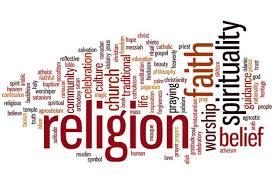
Brooks’s religiosity was shaped by the personal turmoil noted earlier. His discussion reflects that turmoil; intellectual groping; a constant struggle to make sense of his beliefs; to reconcile the irreconcilable. Part of him understands the beliefs are objectively absurd. Yet, as for some religious believers, that itself is an ineffable part of their appeal.
It’s been said that if God didn’t exist, we’d have had to invent him. Well, he doesn’t, and we did. I shun the word “spiritual,” being the ultimate materialist — what we see is what we get. Yet I view that material reality as itself a great gift, in the richness of our experience. Religious faith, whatever its beauty or benefits, is simply false, and one cannot live an authentically meaningful life grounded in fundamental falsity. My own understanding of reality is a profound source of fulfillment. I crave nothing more.
